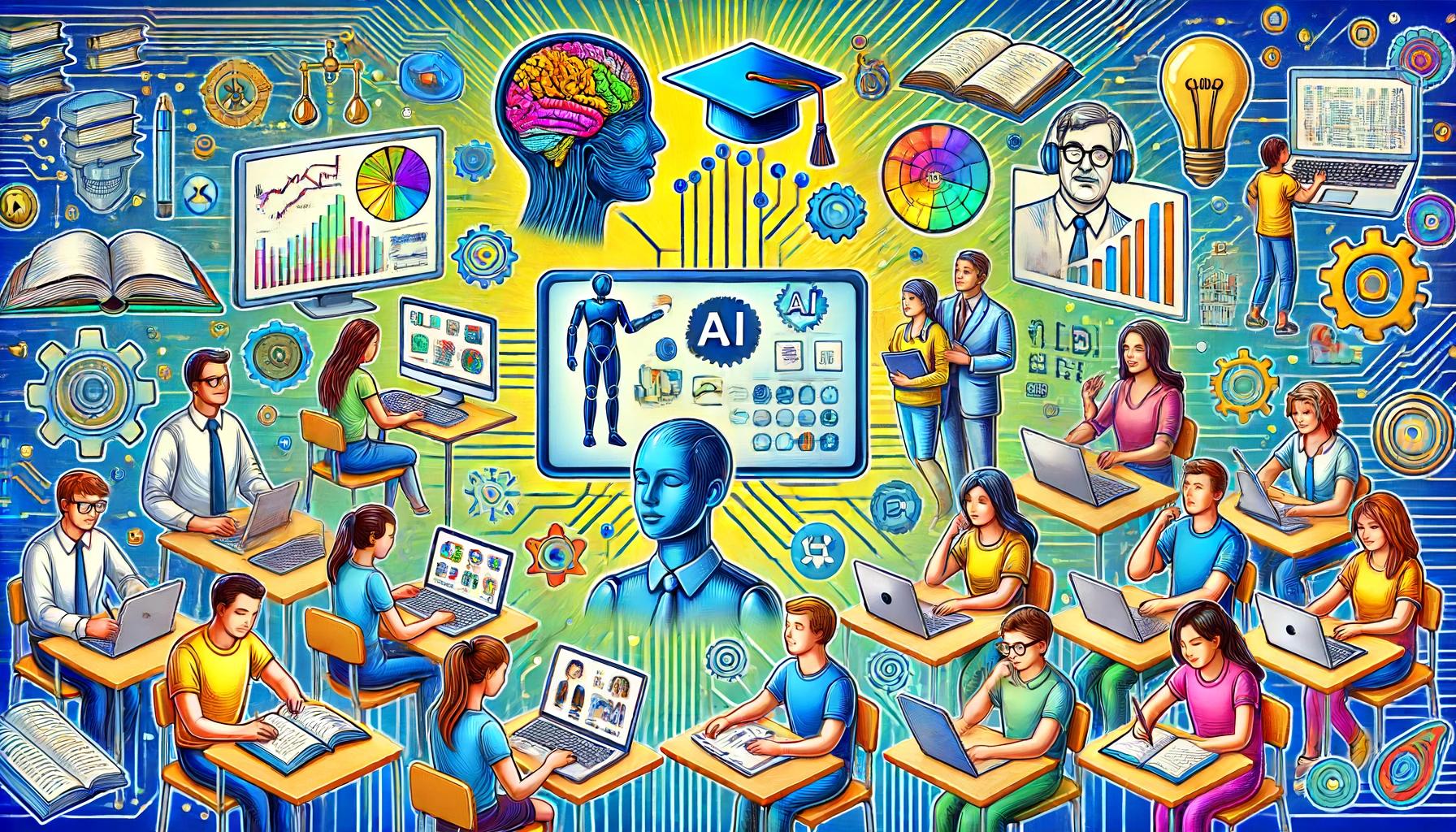Introduction to AI in Education
Artificial Intelligence (AI) is transforming various sectors, and education is no exception. By integrating AI into educational systems, we are witnessing a revolutionary change in how knowledge is imparted and received. This article delves into the profound impact of AI on education, highlighting key areas where AI is making a significant difference.
Personalized Learning Experiences
One of the most significant contributions of AI to education is personalized learning. AI-driven platforms analyze individual learning patterns and tailor educational content to meet the specific needs of each student. This personalized approach ensures that students receive the right resources and support, enhancing their learning experience.
High CPC Keyword: Personalized Learning
AI can identify strengths and weaknesses, adapting lessons to help students grasp concepts more effectively. For instance, platforms like Coursera and Khan Academy utilize AI algorithms to recommend courses and materials suited to individual learning paces.
Read more about personalized learning and AI
Intelligent Tutoring Systems
AI-powered intelligent tutoring systems (ITS) are designed to provide students with immediate feedback and assistance. These systems simulate a one-on-one tutoring experience, guiding students through complex subjects and helping them master difficult concepts.
High CPC Keyword: Intelligent Tutoring Systems
These systems are particularly beneficial for subjects like mathematics and science, where step-by-step guidance can significantly enhance understanding. Examples include Carnegie Learning’s MATHia and Pearson’s Smart Sparrow.
Explore how intelligent tutoring systems are changing education
Automated Grading Systems
Automated grading systems leverage AI to streamline the assessment process. By using natural language processing (NLP) and machine learning, these systems can evaluate written responses and provide feedback more quickly and accurately than traditional methods.
High CPC Keyword: Automated Grading
Automated grading not only saves time for educators but also ensures a consistent and unbiased evaluation of student work. Turnitin and Gradescope are notable examples of AI-powered grading systems currently in use.
Learn more about the benefits of automated grading systems
Virtual Classrooms and AI
The advent of virtual classrooms has been accelerated by AI, providing a more interactive and engaging learning environment. AI enhances these virtual spaces by offering features like real-time language translation, virtual assistants, and immersive learning experiences through augmented reality (AR) and virtual reality (VR).
High CPC Keyword: Virtual Classrooms
Virtual classrooms powered by AI can break down geographical barriers, allowing students from around the world to access quality education. Platforms such as Zoom and Microsoft Teams are incorporating AI to enhance virtual learning experiences.
Discover how AI is enhancing virtual classrooms
Predictive Analytics in Education
Predictive analytics is another area where AI is making a substantial impact. By analyzing vast amounts of data, AI can predict student performance and identify those at risk of falling behind. This allows educators to intervene early and provide the necessary support to ensure student success.
High CPC Keyword: Predictive Analytics in Education
Predictive analytics helps in customizing learning experiences and improving student retention rates. Institutions like Arizona State University are using AI-driven analytics to enhance student outcomes.
Understand the role of predictive analytics in education
AI and Special Education
AI is also playing a crucial role in special education by providing customized learning experiences for students with disabilities. AI tools can assist in creating personalized educational plans, ensuring that every student has access to the resources they need to succeed.
High CPC Keyword: AI in Special Education
For example, text-to-speech and speech-to-text applications, such as Google’s Voice Access, are helping students with visual and hearing impairments engage more effectively with their coursework.
Explore the impact of AI on special education
Ethical Considerations and Challenges
While AI offers numerous benefits to education, it also poses ethical considerations and challenges. Issues such as data privacy, algorithmic bias, and the digital divide need to be addressed to ensure that AI in education is implemented responsibly.
High CPC Keyword: Ethical AI in Education
It is crucial for educators and policymakers to develop frameworks that protect student data and promote equitable access to AI-powered educational tools.
Read more about ethical considerations in AI
Conclusion
AI is revolutionizing education by providing personalized learning experiences, intelligent tutoring systems, automated grading, and more. While the benefits are vast, it is essential to address the ethical challenges to ensure that AI serves as a tool for enhancing educational equity and effectiveness.
By embracing AI, we can create a more dynamic, inclusive, and efficient educational landscape that caters to the diverse needs of all learners.

Leave a Reply